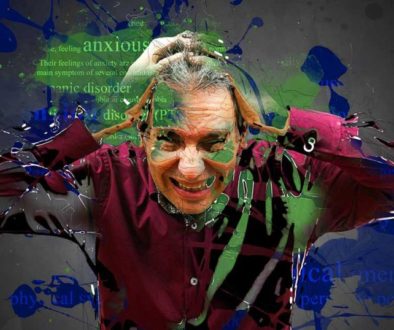Overcoming Panic Attacks through Medication and Therapy
Panic attacks can happen anywhere and to anyone. It is an uncontrollable condition where a person experiences panic in response to normal and non-threatening scenarios. However, when these incidents occur more than four times a month, it may be an indication of a panic disorder.
Overcoming panic attacks depend largely on the level of the condition you have. It is considered a panic attack when you experience these situation fewer than four episodes each month. However, if it goes beyond five and more, it can indicate other panic disorders.
Be aware that if you disregard the early stages of panic attacks and leave it untreated, it can lead to a more serious disorder that can have negative effects on your work, studies, relationships and other aspects of your life. For this reason, most doctors recommend overcoming panic attacks as early as possible through natural methods, medication or therapy.
Treatment Options for Overcoming Panic Attacks
Panic attacks occur because of many reasons, including hormonal or chemical imbalances, alcohol or drug use, stress, traumatic incidents and other events. In overcoming panic attacks, doctors will first ask you about your experiences and its accompanied symptoms, such as rapid heartbeat, numbness, trembling, chest pains, cold or hot flashes, sweating, nausea, difficulty of breathing or disorientation.
Majority of panic attack episodes last around ten minutes. During an episode, both emotional and physical symptoms increase drastically and subside gradually. Since a person tends to feel anxious after an episode, doctors suggest patients to perform simple ways of overcoming panic attacks. These simple and traditional methods of handling panic, such as breathing techniques, help in keeping you calm during a panic attack.
When natural methods of overcoming panic attacks do not work, your two other choices are medication and cognitive behavioral therapy. Most experts say that both these options work effectively to stop panic episodes from occurring. The choice of treatment will depend on the patient’s preference.
While medication, such as anti-anxiety and antidepressants, takes effect almost instantly, it yields greater adverse side effects compared to cognitive behavioral therapy. When you prefer therapy, you will learn how to behave and think appropriately based on the situation or object that you’re afraid of. Cognitive therapy includes family and peer support in helping the patient overcome “fear”.
While both treatment options provide effective results to patients, many experts recommend combining cognitive therapy and medication to ensure that the process of overcoming panic attacks is long-term.


